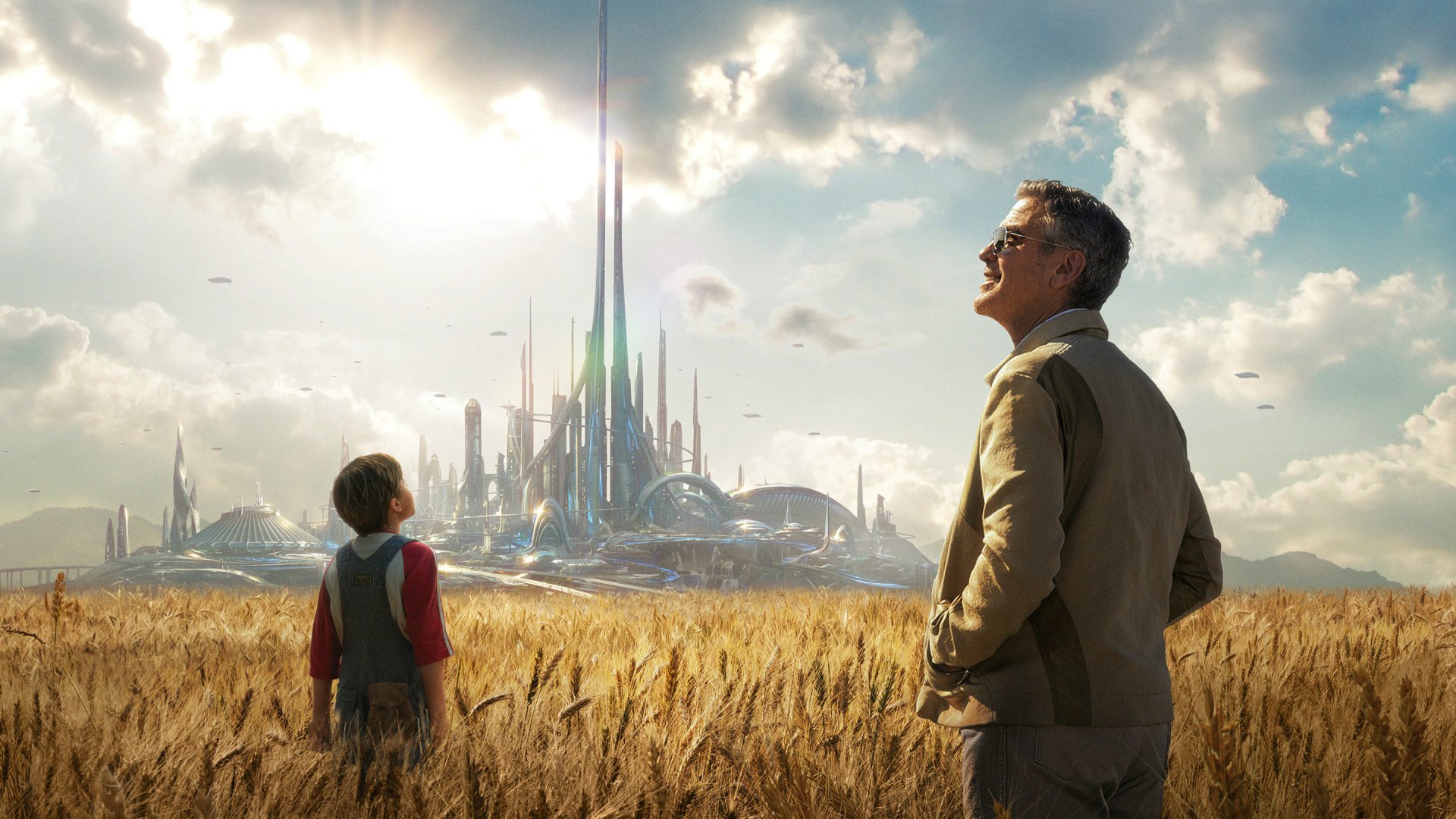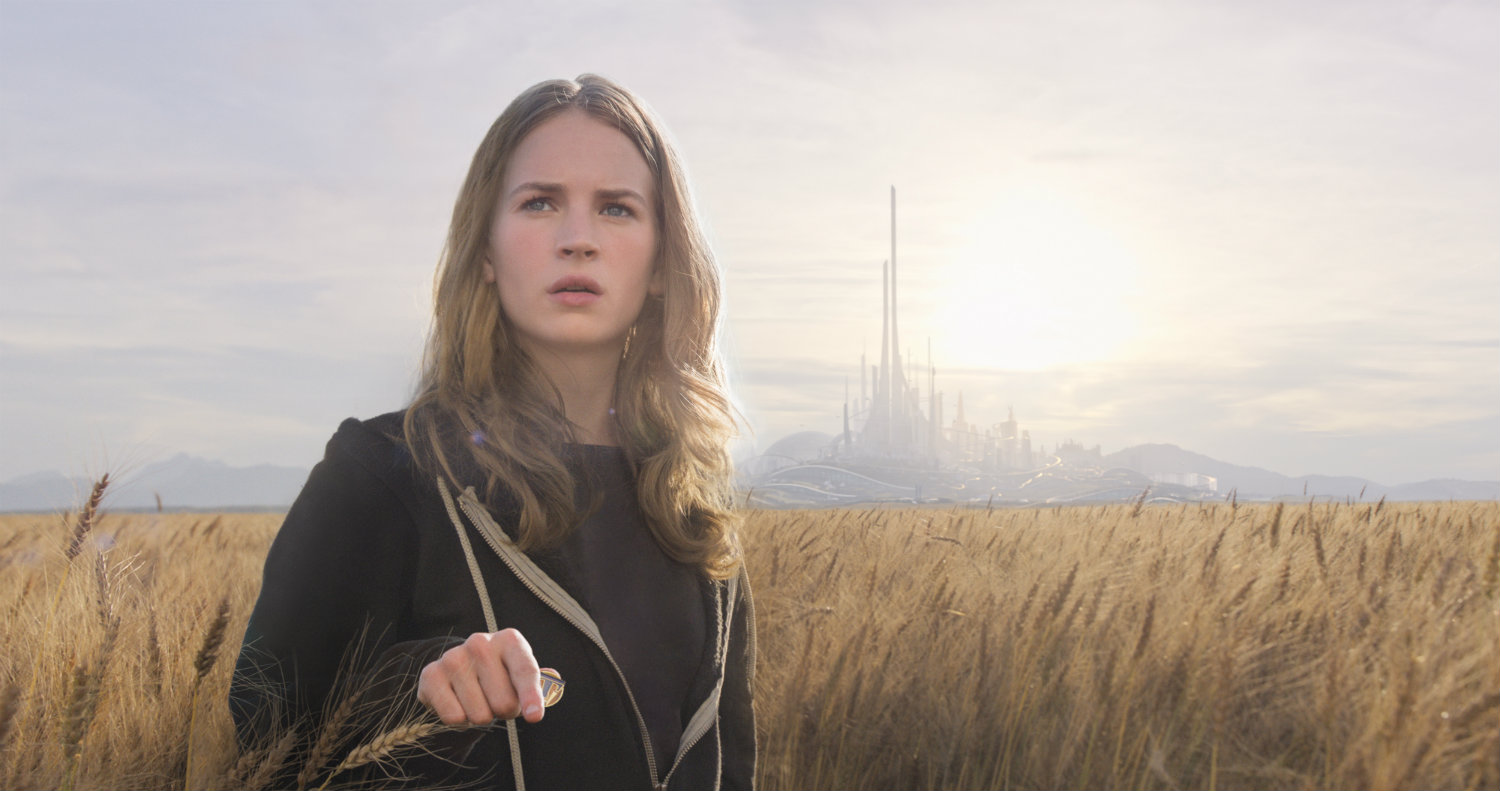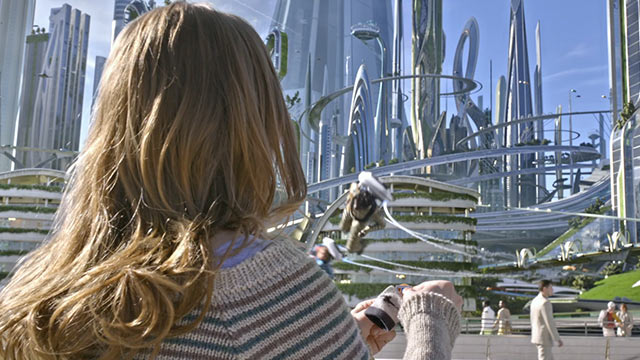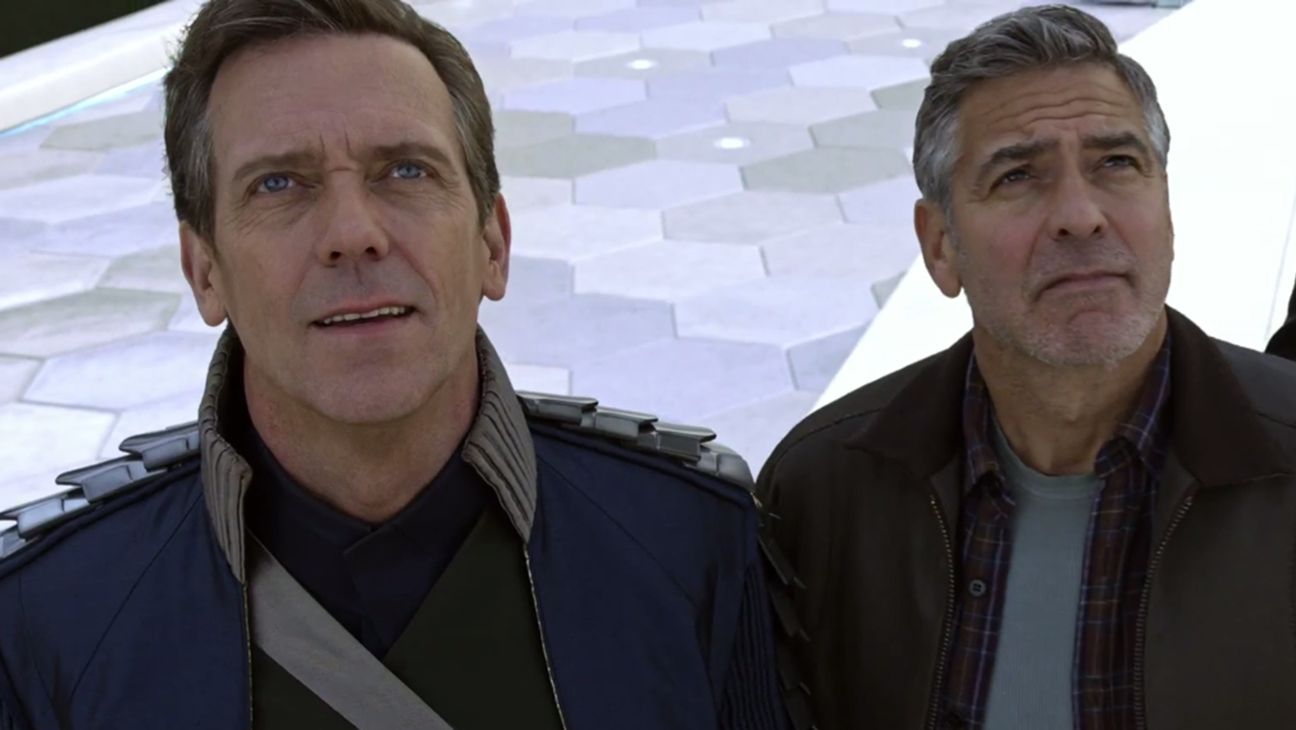I should start out by disclaiming that I am kind of a Brad Bird megafan, coming just short of having a framed picture of the director on my mantelpiece. When I review subpar kids’ movies for this site, I frequently have to rewrite my conclusions to be something other than just “Watch The Iron Giant/The Incredibles again instead of this.” The former is one of my all-time favorites, and the latter, together with Up and Ratatouille, is perhaps the defining film of Pixar’s Golden Age. (Oh—and Bird was responsible for Ratatouille, too.) And Mission Impossible: Ghost Protocol continued the series with not just a good installment, but maybe the best of the bunch.
 Walt Disney Studios Motion Pictures
Walt Disney Studios Motion PicturesAnd, on paper, Tomorrowland is pretty similar to all of those movies. It’s got spy-thriller bits, action scenes, heartwarming interfamilial moments, and a moment of devastating social commentary that will make the audience so quiet you could hear a pin drop.
However, there’s something about Tomorrowland that is distinctly different from Bird’s past filmography. When I say that it sounds good on paper, it turns out that, in practice, that’s the only place it works. This isn’t for a lack of Bird’s traditional touches, but because of their overabundance.
Tomorrowland, no matter how you choose to situate it with respect to Bird’s past movies, is overwhelmingly a product of its time—and, because of that, it highlights a problem with a whole slew of recent films.
Tomorrowland skips back and forth between multiple timelines—and even dimensions—but the gist is this: Casey Newton (Britt Robertson) wants the world to be a better place. Having had an obsession with space travel since she was just a baby, though, Casey’s world-bettering mostly looks like sabotaging government property (specifically, cranes that would dismantle a shuttle launch station).
It’s this drive to improve things that makes her the target of a child known only as Athena (Raffey Cassidey), who gives Casey a vision of a place called Tomorrowland—a place that looks like a Jetsonian vision of the future, with jetpacks, holograms, and whatever you’d call a flying monorail. This vision ends up bringing Casey into contact with Frank Walker (George Clooney), who’s basically her antipodal pair. Where Casey is relentlessly optimistic, Frank is a relentless curmudgeon—grumpy, sour, and sarcastic.
One of the best things about the movie is its leads’ natural chemistry. Maybe most similar to his character in The Descendants, Clooney’s Frank excels at the belligerent angry chemistry the movie requires of him, both toward Casey, who he finds annoying, and Athena, for whom his feelings are much more complicated. Clooney gets few opportunities to be suave, here, but watching his pessimism slowly erode under the force of Casey’s persistence is entertaining.
The real stars are Clooney and Cassidey, the latter of whom comes alive when sparring with Clooney. Cassidey, a Hepburnish 13-year-old, is a little stale when she’s forced to exposit paragraphs (and paragraphs, sigh) of dialogue, but her relationship with Clooney is one of the highlights of the film. And credit where credit is due—whatever is wrong with the script, Bird still has a great ear for dialogue, having been writing charming Whedon-esque banter since before anyone recognized the word “Whedon-esque.”
So what’s the problem? In short, there’s way too much.
In long, there is way way way too much that happens in this movie, most of it not contributing toward the overall tone and mission of the film. It’s a pernicious kind of self-indulgence that’s endemic to most blockbuster movies today; studios seem to think that every movie has to be a journey from set-piece to set-piece, with as little downtime as possible in between.
Tomorrowland feels aggressively overstuffed—not that there are too many plot points, but that too much time is spent on stuff that we don’t care about. An initial jetpack sequence isn’t any more entertaining than the flying sequence from How To Train Your Dragon (the current gold standard of animated flight scenes), and it goes on for a watch-checkingly long time before just kind of sputtering to a halt.
 Walt Disney Studios Motion Pictures
Walt Disney Studios Motion PicturesThe same could be said of most of the action sequences in the movie—they start out being plenty exciting, but drone on for long enough that, by the end, you just want it to move on already. The cartoonish CGI the film employs doesn’t do it any favors, either—it kills any potential immersion in the movie when you realize you’re not even watching your character flip around, but just some rubber-doll looking CGI analogue.
This isn’t just a problem with Tomorrowland—most all of the last years’ blockbusters have felt overstuffed with high-intensity and/or -octane action, and it just becomes mind-numbing. Marvel’s past few offerings have followed this trend, moving from the relatively low-key inceptive Iron Man to the most recent Avengers movie, which is operating at level 10 all the time—either funny or action or drama, it’s always way up here. Last year’s 22 Jump Street suffered from a similar problem, as did the flop of The Amazing Spider-Man 2.
It’s gotten problematic enough that the writers of the new Star Wars movie are getting out ahead of the worry; in a recent interview in Vanity Fair, Lawrence Kasdan (a writer on the film, as well as on the original trilogy) said, “A lot of very entertaining movies lately are too long. In the last 20 minutes, you think, why isn't this over? We didn't want to make a movie like that. I mean, we were really aiming to have it be—when it's over you’ll say, ‘I wish there's more.’ Or, ‘Wait, is it over?’”
The best way to understand this might be through problems in a different medium entirely. Between the early ’90s and the late 2000s, the way music was recorded shifted dramatically, in a process called the Loudness War. Previously, the goal had been to attain a good sense of dynamic range—what was loud would be loud, and what was quiet would be soft and smooth. However, the rise of MP3 players—and with them, terrible headphones—meant that, all the sudden, louder music was seen an unqualified good. All the sudden, bands are pushing out albums whose whispers were as loud as their shouts, and whose audiographs looked like solid, undifferentiated bars.
Blockbusters are now facing their own Loudness War—a push for every minute of every tentpole film to be as chock-full of action and continual excitement as possible. The motivation is just business: louder, larger things make for better theater viewing, and packed theaters are all that’s keeping tentpole-focused Hollywood afloat.
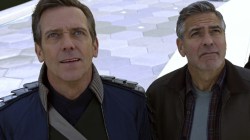 Walt Disney Studios Motion Pictures
Walt Disney Studios Motion PicturesBut dynamic range—the space between how loud your loudest moment is and how quiet your quietest is—is what makes movies feel real and alive. I’ll single out Steven Spielberg as the uncontested king of this, with respect to mainstream movies: people forget that Jurassic Park only features 15 total minutes of dinosaur screen-time—and how many iconic images remain from that film? By rushing past its low-key moments, rather than reveling in them, Tomorrowland becomes just another mishmash of convoluted CGI spectacle and action.
The cinematic Loudness War mistakes quantity for quantity, and breadth for depth. Just because it’s now possible to render a straight half-hour of CGI action sequences doesn’t mean that any of them will stick around in your brain for any longer than it takes to watch them.
There is a good movie lodged somewhere inside of Tomorrowland: one that has Bird’s trademark blend of sensitivity and excitement, that makes its admittedly excellent social commentary a focal point rather than a side-show distraction—and one that is about a half-hour shorter. Tomorrowland is a disappointment not because its a bad movie, but because its a numbing one that explicitly complains about cinema’s tendency to numb. I thought that if anyone could fight Hollywood’s march toward no dynamic range, it’d’ve been Bird. Unfortunately, I think I was wrong.
Caveat Spectator
Casey vandalizes government property and gets off mostly scot-free. There’s a surprising amount of violence in the movie, admittedly all toward robots, but still—human-looking robots. Decapitations, explosions, dismemberments, and more are all perpetrated on androids, most of whom smile Stepfordianly the whole time. Pretty creepy visuals. Casey does her best to stay on good terms with her father, but for a high-school student, she sure does run away and lie a lot—combined with the aforementioned destruction of government property, she doesn’t exactly make the best role model (if that’s what you’re looking for).
There’s a handful of third-tier swears—h***s, d***, etc., as well as some British vulgarities (after all, variety is the spice of life). People who aren't convinced that ice caps are melting and bees are dying may be offended by the movie mentioning these things.
Jackson Cuidon lives in New York City with his wife and dog, and would like to show you pictures of both sometime, if you have a minute. Follow his biennially updated Twitter account@jxscott.

